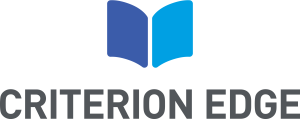The pharmaceutical and biopharmaceutical industries play a crucial role in healthcare, continually researching and developing new medications to improve and save lives. A significant aspect of this process involves the creation of medical and regulatory documents. However, pharmaceutical companies often face bandwidth challenges in managing the sheer volume and complexity of these documents. In this blog, we will explore the challenges that pharmaceutical companies encounter when it comes to bandwidth for their medical and regulatory writing and discuss potential solutions.
- Evolving Regulatory Landscape
One of the primary challenges pharmaceutical companies face is keeping up with the ever-evolving regulatory landscape. Regulatory agencies such as the FDA and EMA frequently update guidelines and requirements, leading to an increased demand for documentation and submission materials. Staying compliant with these changes while maintaining a high level of quality can strain a company’s bandwidth.
Solution: Establishing a dedicated regulatory affairs team that closely monitors and adapts to regulatory changes can help ensure documentation remains compliant. Leveraging regulatory writing experts and advanced technology can streamline the document creation and submission process.
- Stringent Quality Standards
The pharmaceutical industry demands the highest levels of quality and accuracy in documentation. Any errors or inconsistencies in medical or regulatory writing can have serious consequences, including regulatory delays, product recalls, or even patient safety concerns. Meeting these stringent quality standards places immense pressure on pharmaceutical companies.
Solution: Implementing stringent quality control measures, including peer review, compliance checks, and document version control systems, can help maintain the quality and accuracy of documents. Employing experienced medical writers and editors can also ensure that documentation meets the highest standards.
- Expanding Product Portfolios
Pharmaceutical companies often have extensive product portfolios, each requiring a range of documentation, including clinical trial reports, drug labeling, and patient information leaflets. As these portfolios expand, so does the volume of writing required, which can strain available resources.
Solution: Utilizing document management systems and content reuse strategies can streamline the creation of documents across multiple products. Outsourcing non-core writing tasks to specialized medical writing firms can also help manage the workload effectively.
Many pharmaceutical companies operate on a global scale, necessitating the translation of medical and regulatory documents into multiple languages. This adds complexity to the writing process, as accurate translation is critical for regulatory compliance and patient safety.
Solution: Partnering with professional translation services and utilizing translation management software can facilitate the efficient translation of documents. Implementing standardized templates according to each country’s requirements and native language will help drive efficiencies in the production of regulatory submissions.
The pharmaceutical industry operates within strict timelines, especially when it comes to clinical trials, drug development, and regulatory submissions. Meeting these deadlines while maintaining the quality of documents can be challenging.
Solution: Effective project management and resource allocation are essential to meet stringent timelines. Utilizing project management tools and agile methodologies can help ensure that writing tasks stay on track.
Pharmaceutical documents often contain complex scientific and clinical data. Communicating this data in a clear and understandable manner while adhering to regulatory requirements is a significant challenge.
Solution: Employing medical writers with expertise in translating complex data into layman’s terms can improve document clarity. Collaboration between scientists, clinicians, and writers is crucial for accurately conveying complex information.
Pharmaceutical and biopharmaceutical companies face numerous challenges when it comes to bandwidth for their medical and regulatory writing. From navigating regulatory changes to maintaining stringent quality standards and managing extensive product portfolios, the demands for writing resources are substantial. However, with the right strategies, including leveraging technology, outsourcing non-core tasks, and implementing robust quality control measures, pharmaceutical companies can overcome these challenges and ensure that their medical and regulatory writing remains of the highest quality and compliance. Addressing these challenges is not just a choice but a necessity in an industry focused on improving the time it takes to bring innovative life-saving therapies to market.

